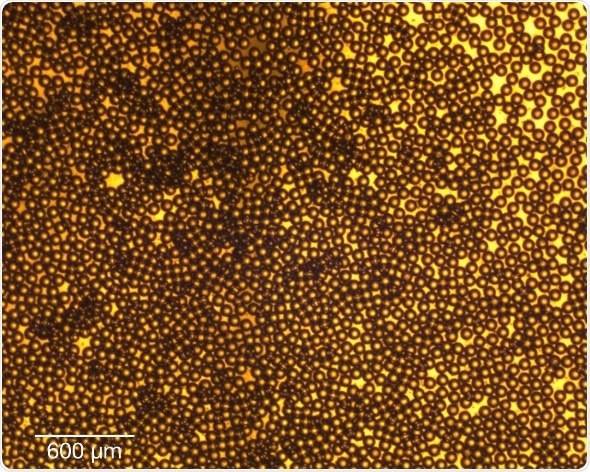Nov 30 2016
Particle Works – the nano- and microstructured material specialist – has developed a range of alginate and agarose hydrogel beads designed to enable three dimensional cell culture growth. This bead-based environment more closely mimics in vivo conditions, providing greater access to nutrients and allowing better cell-cell interactions.

Agarose Beads
Three dimensional cell cultures have been widely recognized as offering substantial improvements over conventional two dimensional (Petri dish) cultures for many years, allowing considerably more accurate in vitro investigations of cellular behaviour.
Particle Works alginate and agarose beads are precision manufactured to offer exceptional experimental reproducibility and easy scalability for a range of applications. These highly monodisperse beads have a uniform size of 75 µm and excellent batch-to-batch consistency – with typical CV values of ≤2.5 % – and are supplied as highly concentrated suspensions, allowing close packing of beads for higher cell yields.
The company’s state-of-the-art facilities and nanomaterial expertise allow rapid manufacturing to suit your throughput needs, with full characterization data and product quality guarantees, plus dedicated service support for life sciences applications.